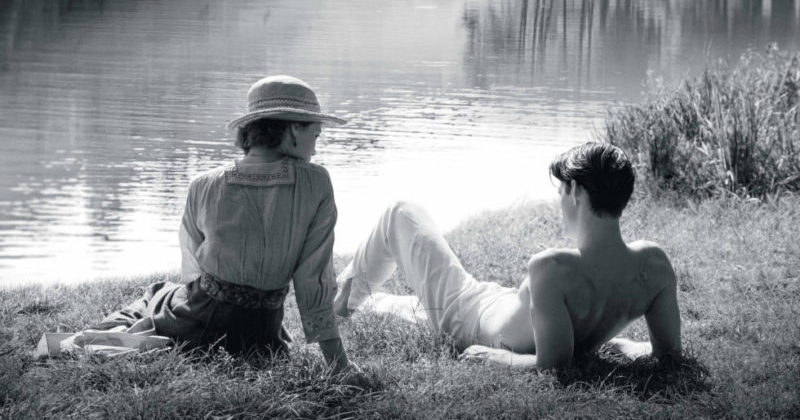
Francois Ozon, over the span of his nearly 30 year career as a short and feature-length filmmaker, has become one of French cinema’s true giants, despite having not nearly the same name recognition as many of his counterparts. Surely films like Swimming Pool and 8 Women have been seen by a large number of cineastes, and yet he doesn’t have the Hollywood stamp of approval someone like Luc Besson does, nor does he have the cult of critical support filmmakers like Claire Denis or Arnaud Desplechin have surrounding their work.
However, that hasn’t changed the fact that Ozon is quietly one of the country’s great film artists and if one needs any proof, just take a gander at the filmmaker’s latest and arguably greatest work.
Entitled Frantz, Ozon takes to the world of Ernst Lubitsch, bringing back to life one of that giant’s lesser known efforts. Drawing inspiration from Lubitsch’s Broken Lullaby, Frantz tells the story of Anna, a young German woman whose fiance, the titular Frantz, lost his life in the trench battles during the first World War. Finding the woman caught in the middle of her grief is a war veteran, Adrien, and the two begin to spark a relationship of sorts. As we discover more about Adrien, we also discover that he and Frantz had themselves sparked some sort of close bond, which makes the romantic entanglement that ensues all the more compelling and captivating.
Himself a director of dramas that are about as visually sumptuous as they are deliciously rooted in melodrama, this might be Ozon’s most mature thematically, and dense emotionally, work to date. Told, more or less, in lush black and white (the use of color here should not be spoiled but culminates in a closing shot that’s quite staggering), Frantz is a beautifully crafted period drama. Designed within an inch of its life and lavishly produced, the direction here is itself quiet, finding Ozon more interested in the ostensible two hander that makes up the central narrative. We become privy to the cultural landscape in the fallout from WWI, and that interplay makes up a majority of the film’s introductory moments, but in all of his gorgeous compositions, Ozon’s strength has always and will always lie in his hand with interpersonal drama. The question of when is it okay to move on is at the very heart of this film, and Ozon’s handling of grief and the grieving process is nuanced and allows for truly captivating dramatic beats.
That being said, the film is remarkably made. Again, shot primarily in black and white by oft-collaborator Pascal Marti, the film uses brief bursts of color to a great degree, leaving it to the realm of memory and emotional warmth. This hints at a sense of visual melodrama that Ozon has always flirted with, but made manifest in these transitional moments. Far quieter than a lot of his recent work, Frantz is a muted relationship drama that for all of its lavish design work and percussive use of photography, never loses sight of the drama of grief at its core.
Elevated by two superlative performances from Pierre Niney as Adrien and Paula Beer who is a revelation as Anna, Frantz is one of Ozon’s greatest and most emotionally resonant works to date. Seeing the filmmaker take a decided step forward in his use of his craft and the maturity of his subject matter, this seems like a watershed moment for a filmmaker who has yet to truly find the respect he deserves as one of French cinema’s great storytellers.



